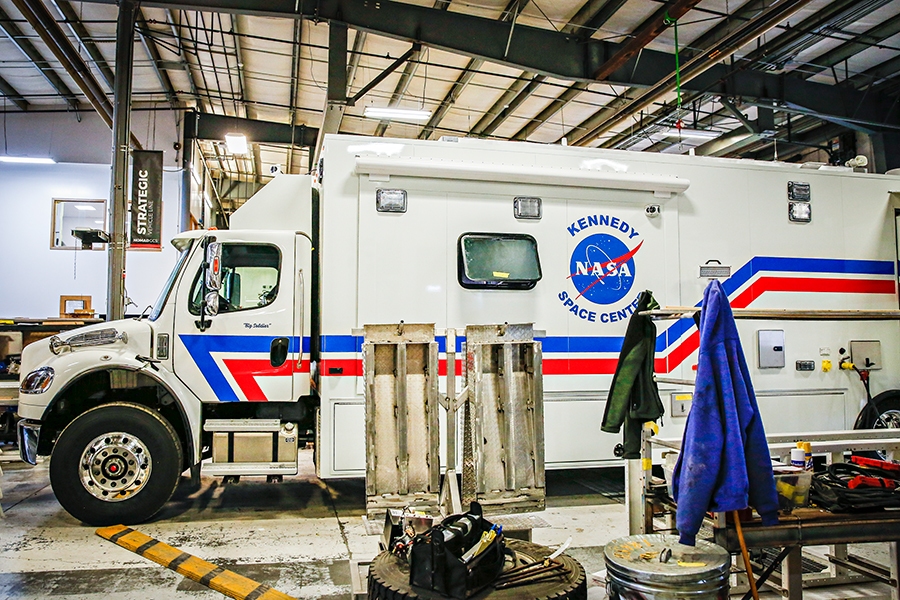Building a Manufacturing Powerhouse Right at Home
As Nomad Global Communication Solutions continues to grow its global footprint, it proudly maintains operations in the Flathead Valley
By Maggie Dresser
W hen Nomad Global Communication Solutions first started operations in 2002 in the Flathead Valley, its founders thought about moving to a bigger city, like Denver or Salt Lake, with a more central location.
But they couldn’t leave Glacier’s peaks and the tight-knit Flathead community. So they leveraged the valley to their advantage and became one of the world’s only custom mobile communications center manufacturers, located in Columbia Falls.
Nomad has grown from one trailer when the company launched to now having 500 communications solutions in all 50 states and six countries.
“This is where we want to be,” said Clay Binford, the director of people and development and one of the four founding members, along with Shane Ackerly and brothers Will and Seth Schmautz.
While being located in a larger city would supply a larger workforce and ease traveling, Binford says the location hasn’t impacted the company significantly. The Flathead may offer a smaller workforce, but Binford says it also attracts a more highly skilled workforce. Employees are coming from larger cities, where they often have 20-plus years of experience, and bringing that knowledge to Montana for a better quality of life.
“I don’t think you would find a better breadth of experience and capabilities anywhere,” Binford said. Binford describes Nomad as a general contractor that employs subcontractors. The company either enters a contract with a private entity or goes through a bid process on the open market.
Once contracts are signed, the design and manufacturing process begins, averaging nine months until completion. Smaller vehicles like sprinter vans aren’t as complex and take less time, but the company also builds vehicles as long as 48 feet, which can take a year to finish.
With more than 100 employees, including skilled engineers and technology specialists, Nomad completes the whole process, starting with sales and ending with installation, entirely at its facility in Columbia Falls.
Nomad produces communications vehicles for both the public and private sectors, including NASA and the U.S. Army, as well as multiple utilities, oil and gas centers across the globe.
The U.S. National Guard has been a consistent customer and has ordered as many as 67 vehicles at once in the past. At one point, Nomad had a second location in Maryland to cut transportation costs for that specific contract. But Binford says he doesn’t see Nomad relocating or adding additional locations.
“We see our growth happening here in the valley,” he said.
Nomad is, however, evaluating space needs for production. Binford says the company will eventually need more space for manufacturing, but the expansion will occur in the valley.
When Nomad launched 17 years ago, it initially developed only communications systems and didn’t manufacture vehicles, Binford said. The company purchased its first trailer and simply installed the communications system. Its success led the company to completely manufacture the command centers, installing not only the communications but building entire trailers from scratch.
The mobile centers, all manufactured in the Flathead, have been used for disasters like Hurricane Harvey, the historic 2011 Missouri River floods and the Boston Marathon bombing in 2013.
“Even though we’re not physically there we help with many national disasters,” Binford said.
In addition to emergency-response vehicles, the firm also builds mobile career centers and dental facilities for rural areas, where populations might not otherwise have access.
“We have some very unique products,” Binford said. “We’re an innovative culture and we’re trying to find more and better ways. We’re not satisfied with doing the same thing over and over again.”